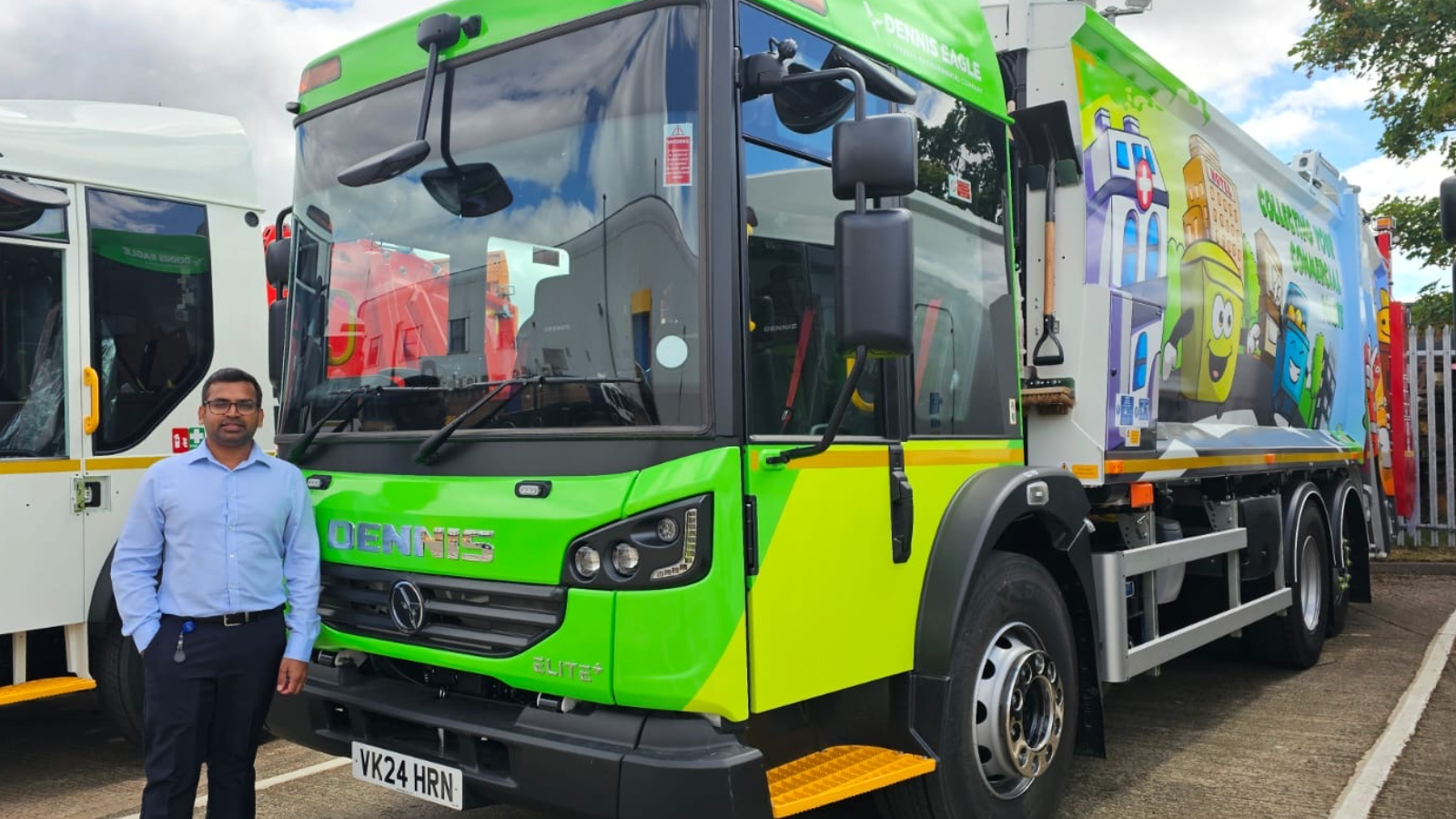New cybersecurity measures bring extra peace of mind

The predominant cybersecurity risk to be addressed by vehicle manufacturers is the potential for the remote control of vehicles by hackers, from scammers to state-level terrorists. Once control is taken – the most likely entry point into the vehicle being the telematics – this can lead to ransom demands affecting a fleet’s ability to collect refuse for a period of time, or much more seriously, for the vehicle to be used as a weapon in a public space. Whatever the motive, there is a considerable growing financial and reputational threat to businesses and authorities.
A new regulation, UNECE R155, is designed to protect vehicle operators and the public from the cybersecurity risk. This regulation affects the entire automotive industry and compliance is compulsory. UNECE R155 covers product security as well as the people, processes and technology required to implement a Cybersecurity Management System (CSMS).
At Dennis Eagle, achieving UNECE R155 certification has been a dedicated project overseen by Head of Vehicle Cybersecurity, Manu Gowda. Manu has been working across almost every organisational function within the company since April 2023 to introduce new measures, systems and processes and he was delighted to receive Dennis Eagle’s UNECE R155 certificate last month.

Manu Gowda, Head of Vehicle Cybersecurity
“You can view a Dennis Eagle vehicle as being a collection of many computers, each of which could potentially be vulnerable to attack. An average refuse truck contains 35 to 40 electronic control units (ECUs) from brake and steering control units to motor control and battery control units,” explains Gowda.
“The key part of the legislation is that it requires these ECUs to be cyber secure. Cyber secure means that ECUs identified as being critical must have a firewall installed. So, in the past 18 months, we have been working with our suppliers to undertake this exercise, which involves setting a risk threshold, then evaluating and mitigating the risks of the component or system, documenting our processes with the Vehicle Certification Agency (VCA) who audited us for five weeks,” continues Gowda.
Cllr Scott Arthur, Environment Convener, said: “We’re committed to investing in our fleet and where possible we’re going electric. The feedback from staff using the five electric refuse collection vehicles shows they are making a real difference to our residents, operating a quieter service, and improving air quality - already saving over 100 tonnes of carbon emissions.
“The process has involved a lot of cross-functional working: an indirect team of 15 colleagues in purchasing, sales, aftermarket, engineering, quality and HR has been working together. We received some positive comments about our way of working from the VCA. We must also credit our suppliers who share our serious approach to cybersecurity. Between us, we have generated thousands of pages of documentation covering threat assessment and remediation analysis.”
Hackers are determined of course and will persevere to find workarounds to cybersecurity measures. That is why a manufacturer’s R155 certification only lasts for 18 months, why manufacturers are continually audited and why another regulation, UNECE 156, has also been introduced. UNECE 156 ensures that any software updates to control units need to be securely updated and come from a trusted source. Dennis Eagle vehicles will be compliant with UNECE 156 during 2025, in line with the regulatory timeline.
“Cybersecurity is certainly not a one-time exercise; it’s an infinite game,” says Jon Sayers, Engineering Director at Dennis Eagle. “The legislation requires OEMs to continue to demonstrate they understand the evolving risks and have a plan in place to continue to address them.
“Dennis Eagle is committed to continuous improvement. We will keep updating the firewalls to keep a step ahead of the criminals. As such, our customers can have confidence that our new vehicles, whether diesel or EVs, are more secure than ever and that we are doing everything we can to protect them and their customers,” concludes Sayers.